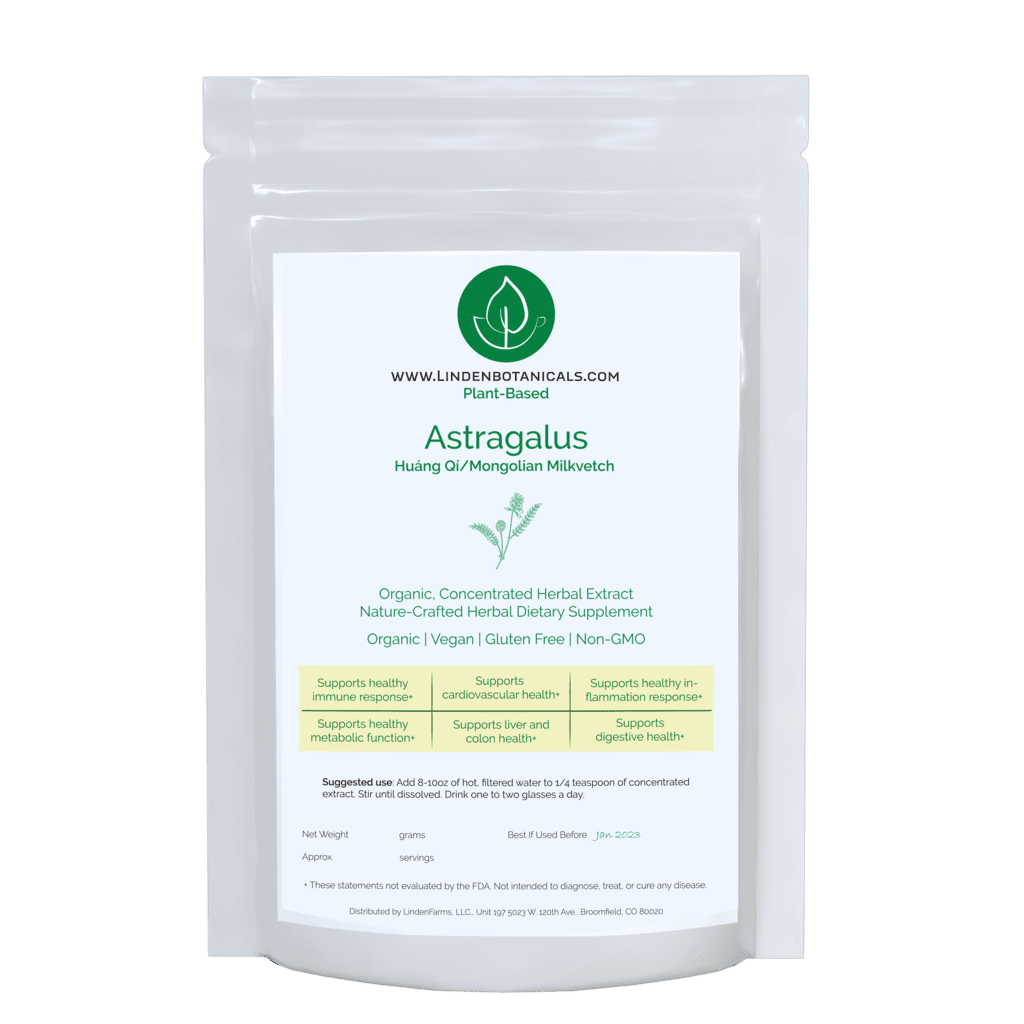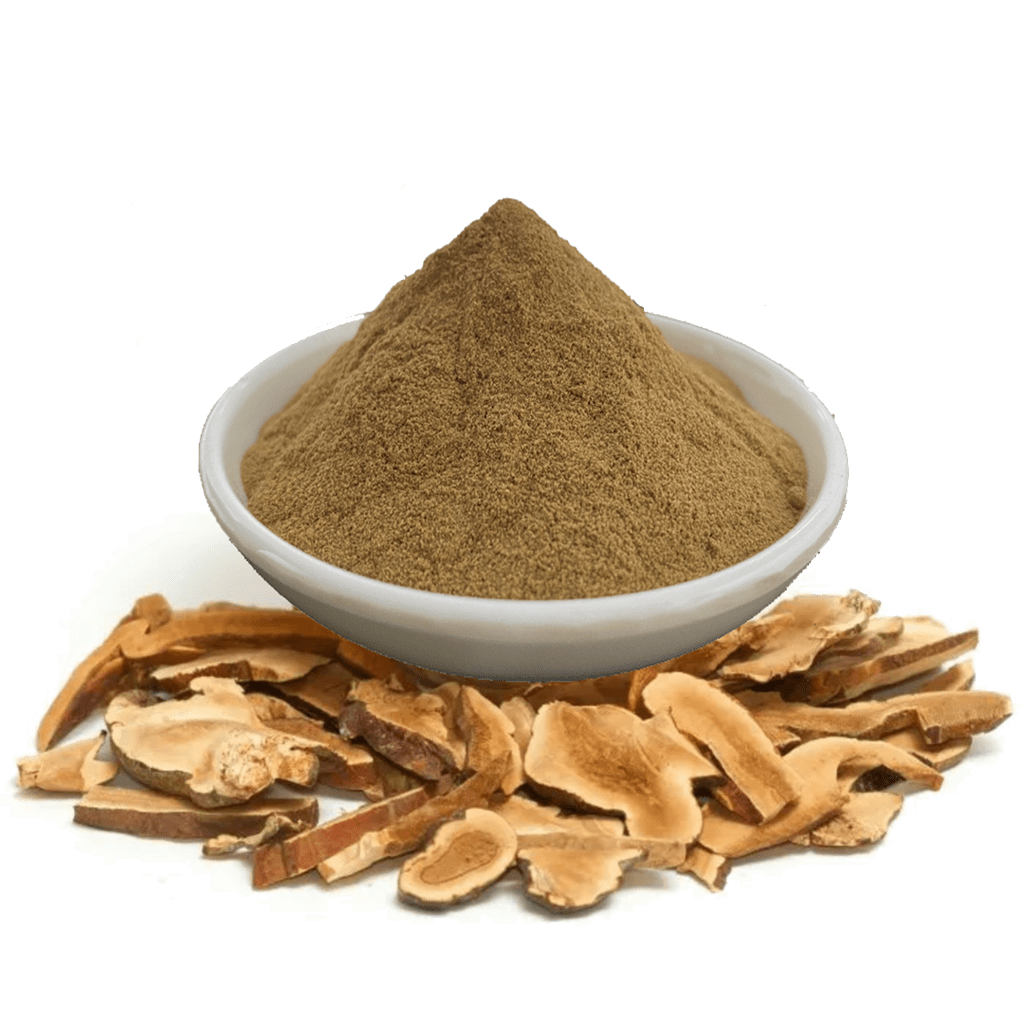
Astragalus Extract
Supports healthy immune and inflammation response, healthy cardiovascular and kidney function, and improved energy. Astragalus membranaceus is the Star Healer. This traditional medicinal plant has been used to increase white blood cell counts, fight bacterial and viral infections, improve blood flow and mitochondrial health, and provide immune health support for people suffering from Lyme disease. One gram per serving.
Price: From: $16.25 ➙ Never Run Out with Autoship — available on subscription
Astragalus Extract
Astragalus membranaceus is a perennial herb that belongs to the family Fabaceae. It grows on sandy riverbanks, hillsides, shrub edges, or sunny slopes. It has an erect stem growing to 0.3 m (1ft) by 0.3 m (1ft in) in height with small leaves on the upper branches and long roots. The lobular are 13-31 pieces, leaves are ovate-lanceolate or elliptic, and the corolla is light yellow. It is mostly found in the northeast, north, and northwest China, as well as in Korea, Inner Mongolia, Shanxi, and Tibet.
Astragalus is a significant plant in the ethnomedical traditions of its native range. It is valued for its healing and rejuvenating actions. The main traditional use has been to provide immune and heart health support.
Astragalus extract has a mild earthy flavor with a hint of sweet and sour. Astragalus may help to strengthen the immune system, reduce oxidative stress, and enhance cardiovascular function.
Astragalus Benefits
Reported health benefits of Astragalus membranaceus root extract include helping to ameliorate underlying inflammatory conditions, supporting healthy cardiac function, and providing antioxidant support in reducing free radicals.
Astragalus herbal extract may help improve heart function, reduce blood pressure, and lower cholesterol levels. These effects could potentially lower the risk of heart disease and improve overall cardiovascular health.
Astragalus has antioxidant properties, which can help neutralize harmful free radicals in the body. Its antioxidant activity may contribute to its potential anti-aging effects and ability to help reduce oxidative stress and protect cells from damage.
Some people use Astragalus as a complementary approach to support their immune system while undergoing treatment for Lyme disease. Astragalus polysaccharides and flavonoids that are believed to have immune-modulating effects, which may help the body combat infections.
Chronic Lyme disease is often associated with inflammation. Astragalus has been studied for its anti-inflammatory properties, which could potentially help alleviate some symptoms associated with Lyme disease.
The extract supports physiological functions in mitochondria that can improve vitality, longevity, and life quality.
Astragalus membranaceous extract:
- Supports healthy immune response
- Supports healthy metabolic function
- Supports digestive health
- Supports liver and colon health
- Supports healthy inflammation response
- Supports cardiovascular health
Serving Suggestion
Instructions: Add 1/4 teaspoon of extract to 8oz of near-boiling water or a cup of juice. Mix until dissolved. Drink 1-2 servings a day.
One serving per gram (e.g., 20 grams = 20 servings, 50 grams = 50 servings, and 100 grams = 100 servings).
Additional information
The information herein is intended for educational purposes only. This information should not substitute for seeking responsible, professional medical care. The information provided should not be used during any medical emergency. Not intended to be used for the diagnosis, treatment, prevention, or curing of any medical condition. Consult with your healthcare provider before using any herbal supplement.
Astragalus is a significant plant in the ethnomedical traditions of its native range. In traditional Chinese medicine (TCM), it is thought to strengthen the qi of the heart. The herb is described as sweet and warming to the spleen and lungs. It is considered a tonic for both the digestive and immune systems. It is also described as warming the muscles and strengthening the striae. This can help to invigorate qi.
In Ayurveda, Astragalus extract is used to support detoxification pathways, support digestion, and modulate the body’s immune response. It is believed to be anti-allergenic, anti-inflammatory, and supportive of the liver and gallbladder. Highly revered in India, preparations are used as a cardiotonic. Traditional uses also include strengthening and nourishing the joint tissues and supporting the proper function of the colon, lungs, liver, and spleen.
Other names include Huang Qi, Yellow Life Energy, Bei Qi, Hwaggi, and Milkvetch. We call it the Star Healer.
The root of Astralagus membranaceus contains potent active phytochemicals responsible for various health benefits. The main classes of phytochemicals include Polysaccharides, Flavonoids, Saponins, and amino acids. However, it also contains other trace bioactive compounds.
Flavonoids: Kaempferol, Quercetin, Isorhamnetin, Rhamnocitin (27), (3R)-2′, 3′-dihydroxy-7,4-dimethyl oxygen radicals Isoflavones, (6aR,11aR)-10- hydroxy-3,9-dimethyl oxygen radicals red sandalwood alkyl, 1′-hydroxy-7,3′,4,-trimethoxy Isoflavanone, Odoratin-7-O-β-D-glycoside, 7, 3′-dihydroxy-6, 4′-dimethoxyisoflavone, Formononetin-7-O-β-Dglycoside-6″-O-acetate, (6aR, 11 a R)-3-hydroxy9, 10-dimethoxy-pterocarpan, Calycosin-7-O-β-D-glucoside, (6aR,11aR)-3-hydroxy-9,10-dimethoxypterocarpan, (3R)-7,2′-dihydroxy-3′,4′-dimethoxyisoflavan, astrapterocarpanglucoside-6′-O-malonate, astraisoflavanglucoside-6′-O-malonate, and formononetin 7-O-glucoside.
Amino Acids: Asparagine, Canavanine, Proline, Arginine, Aspartic Acid, and Alanine.
Saponins: Huangqiyiesaponin C, Astragalus saponin I–IV, Acetyl Astragalus saponin I, Isoastragaloside IV, Agroastragaloside I–IV, Astragalus saponins VI-VIII, Astragalus aglycone, Mongholicoside A, Mongholicoside B (12), 3-O-β-Dxylopyraosyl-24S-cycloart-3β,6α,16β,24,25-pentaol-25- O-β-D-Glucopyranoside, Isoastragaloside IV, Cyclocanthoside A, Asernestioside C, 6,3′-dihydroxy-2′,4′-dimethoxyisoflavan-6-O-β-D-glucopyranoside, β-sitosterol, β-daucosterol, and Sphondin.
Other Active Constituents: The root may contain more than twenty kinds of trace elements, including Scandium, Chromium, Cobalt, Copper, Selenium, Molybdenum, Cesium, Iron, Manganese, Zinc, Rubidium, Beta-carotene, Magnesium, Niacin, Phosphorous, Potassium, Rhamnocitin, Riboflavin, Rubidium, Silica, Sucrose, and Thiamine.
It may include Coumarin, Folic Acid, bitter elements, Ferulic acid, Isoferulic acid, Choline, Betaine, Linoleic Acid, Caffeic cid, Green cid, Palm cid, 13-sitosterol, Daucosterol, Linolenic cid, Vanillic Acid, Palmitic cid, Hydroxy Phenyl crylic cid, and Lupeol.
No known side effects.
You should consult your physician before using any herbal supplant, especially if you are pregnant or breastfeeding.
| Weight | 100 g |
|---|---|
| Weight | 20g, 50g, 100g, 200g |











